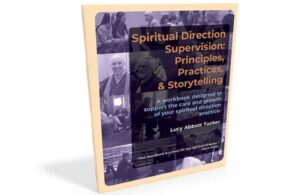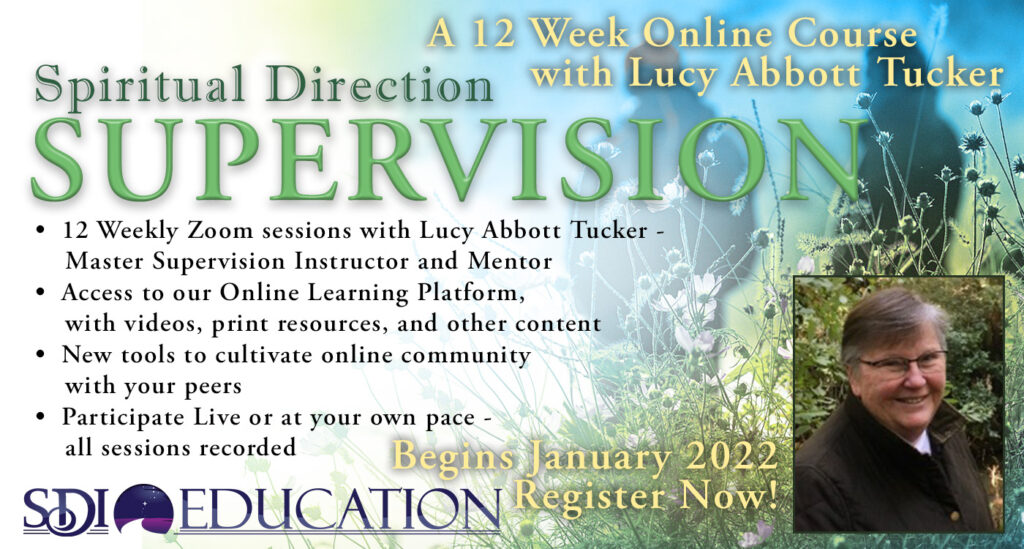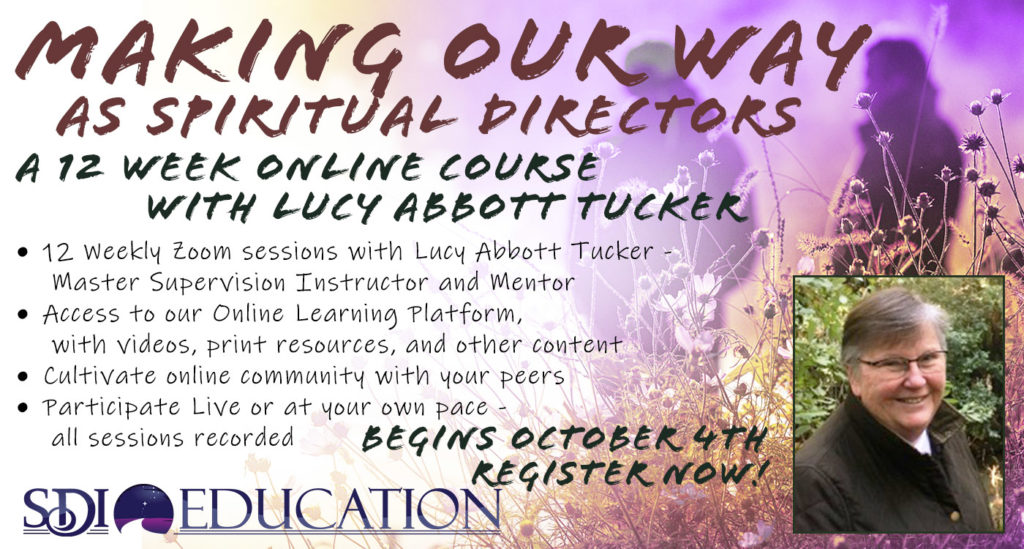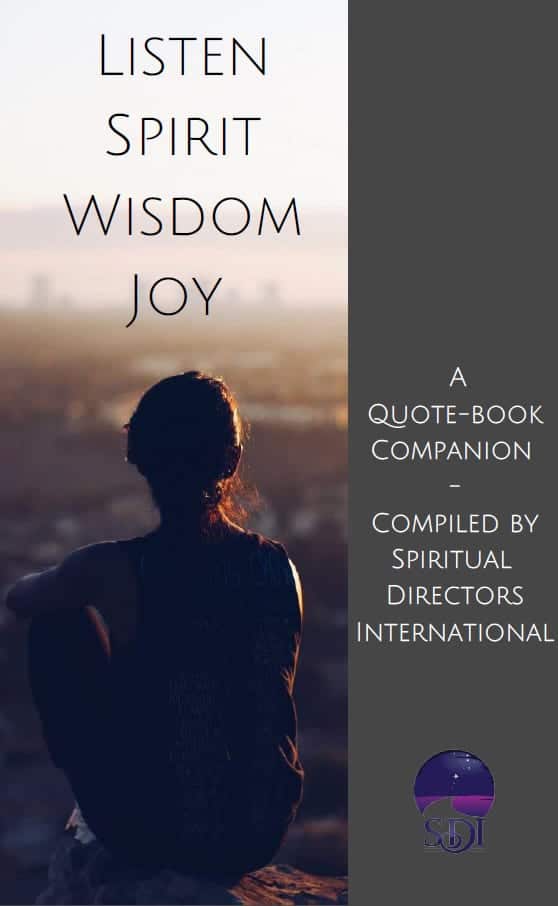Spiritual Direction Supervision
Below you will find FAQs and resources related to Spiritual Direction Supervision.
This content was originally created through the SDI Supervision Task Force by Wendie Bernstein Lash, Lucy Abbott Tucker, Care Crawford, Maureen McDonnell, and Karen Erlichman, which convened in 2016.
What is Spiritual Direction Supervision?
Spiritual direction supervision supports the care and growth of spiritual directors in service of the seekers they accompany. Supervision focuses on the spiritual director so they can better serve the seeker and their relationship with God, Allah, The Universe, or however one refers to the Ground of All Being.
Supervision is a contemplative, sacred process undertaken individually or in conversation among multiple spiritual directors. Supervision meetings explore an experience of one spiritual director as they companion a seeker.
Supervision is a reflective practice. A spiritual director engaged in supervision will take time after a spiritual direction session to become aware and notice what transpired with a seeker and what continues to hold energy within the spiritual director following the session. This then becomes the focus of the spiritual director’s reflection, first alone and then with another spiritual director or peer group.
The supervision process invites the spiritual director to take time to explore what is beneath the surface: to better understand oneself, to discover how best to accompany seekers, and to acknowledge how Spirit is present and active in the spiritual direction relationship.
The goal of supervision is to assist the spiritual director to become more supportive and skilled in accompanying the seeker in a relationship with Mystery who many name God
What is the Importance of Spiritual Direction Supervision?
Spiritual directors are people with personal gifts and challenges who are affected by their own—and the seeker’s—feelings and experiences.
Spiritual directors need to be committed to ongoing education, self-care and spiritual care including attention and self-awareness to their interior experiences, their assumptions, and their freedom or lack of freedom in relationship to the spiritual seeker and God.
The spiritual director notices and explores interior movements, emotional reactions, thought patterns, embodied and verbal responses that occur before, during, or after a session with a seeker. Following this exploration, the spiritual director allows some contemplative time in silence to ponder the fruits and insights that arise from the reflective process. Unresolved or unacknowledged beliefs and feelings can get in the way of supporting seekers to explore their interior space. Regular reflection on the interior life of spiritual directors while they offer spiritual direction is part of the ethical contract (covenant) for spiritual companions. See SDI’s Guidelines for Ethical Conduct.
Supervision supports the spiritual director through continued care and growth in vocation, calling, and skills as a spiritual director. In supervision, the spiritual director through continued care and growth in vocation, calling, and skills as a spiritual director or spiritual companion, and to explore the shape, depth and breadth of their work or ministry. Supervision is a relationship in which the director or companion can explore their growing edges, challenges and leadership skills. Some supervisors also support spiritual directors or spiritual companions with some of the practical and professional aspects of offering spiritual direction or companionship.
Models of Supervision
Supervision has long been considered an essential tool for individuals who offer spiritual direction. Supervision is an opportunity to explore the movement of the Sacred in both the spiritual director and the spiritual directee. The format of supervision varies. Group supervision can offer a community of support and nourishment for spiritual directors. Individual supervision can provide an oasis from isolation for those who offer spiritual direction outside an institution or organization. Initially, most spiritual director formation and training programs introduce individual and group supervision. There may also be time devoted to consultation, where the focus helps the spiritual director understand the spiritual directee. All of the supervision processes begin with the spiritual director engaging in self-reflection and self-supervision.
Throughout one’s ministry and service of spiritual direction, all of the models of supervision listed below will likely be engaged. At different times, one of more of the models may take precedence.
Self-supervision: Whether one is companioning individuals, groups, organizations or faith communities, offering spiritual direction is often a solitary ministry and service. Spiritual directors or companions must learn to be accurately self-reflective regarding their strengths, limitations, and learning edges as a spiritual companion. The process of self-supervision needs attention after every meeting with a spiritual directee and is the initial process that must be honored before engaging in other models of supervision.
Individual Supervision: A one-on-one meeting with a trained supervisor helps a spiritual director understand one’s own strengths, limitations, and learning needs. Individual supervision is most frequently used when an individual is in a formation and training program. It is also a very useful process when a spiritual director has questions or concern about a particular spiritual directee, or is grappling with an ethical dilemma. Spiritual directors who companion many spiritual seekers may choose individual supervision because it gives them greater opportunity to process the material that arises.
Peer Supervision/Group Supervision: Group supervision or peer supervision are the most common forms of supervision for spiritual directors. At the core, these models involve individual spiritual directors, engaged in self-reflection and self-supervision, allowing themselves to be accountable by sharing their experience within a group setting. During peer or group supervision, the spiritual director reflects upon his or her experience of spiritual direction and a group of peers share their insights with the spiritual director. The spiritual director is invited to reflect upon the gifts and areas of growth he or she is experiencing while meeting with spiritual directees. It can be helpful to have a facilitator or trained supervisor in a group to assist the members in staying faithful to the goals of peer supervision. The advantage of supervision in a peer or group setting includes every member of the group learning from the material that is presented.
Consultation: No matter how well prepared an individual is to offer spiritual direction, the spiritual director may face an individual, situation, or experience that requires additional expertise. At these times, consultation is an appropriate part of the supervisory process. Consultation educates a spiritual director and provides information and resources that will assist in meeting the needs of a spiritual directee. In addition, consultation helps a spiritual director recognize the limits of his or her competency and identify when it is appropriate to refer the spiritual directee to a qualified professional.
Explore the resources below for further reading on supervision.
Supervision and Peer Group Resources
Below are several useful resources for learning about spiritual guidance supervision.
Presencia Articles about Supervision
The articles listed below are a sampling of those which can be found in back issues of Revista Presencia.
To read these articles (or find additional articles), members can sign up for a subscription to our Presence Digital Archive, which will allow search the entire back catalog of Presencia. A limited number of back issues are also available for individual purchase in our online store.
Spiritual Direction Supervision Workbook
SDI has published a supervision workbook by Lucy Abbott Tucker, Spiritual Direction Supervision: Principles, Practices & Storytelling. Find more information here.
-
Spiritual Direction Supervision: Principles, Practices, & Storytelling by Lucy Abbott Tucker
Añadir al carritoStudent Plan $49.95$29.95Standard Plan $49.95$29.95Premium Plan $49.95$29.95Enhanced Plan $49.95$29.95
Explore the principles, practices and stories of master teacher and SDI co-founder Lucy Abbott Tucker as you deepen your own approach to spiritual direction supervision.

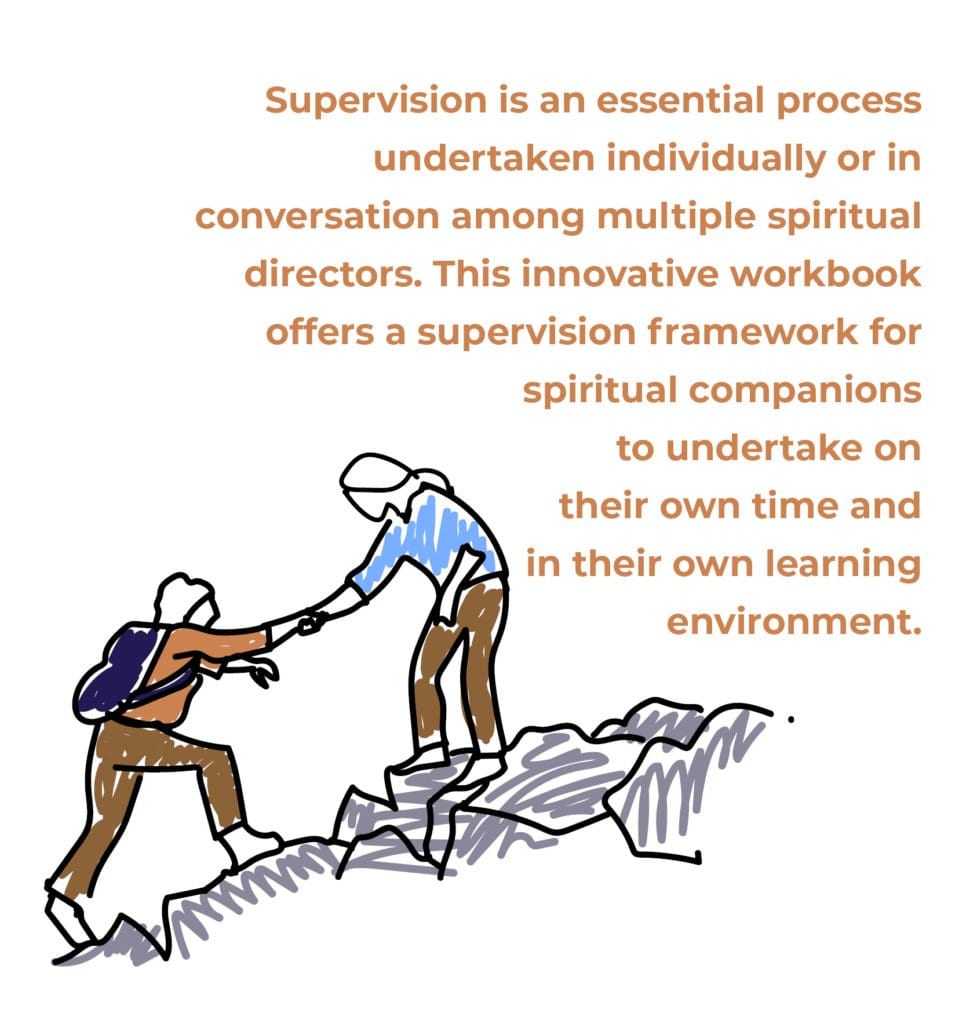
An innovative, full-color workbook designed to support the care and growth of your spiritual direction practice.
Supervision
The major principles of the spiritual direction supervision practice, as taught in Lucy's many workshops.
PRACTICES
12 time-tested models refined by Lucy in her years of supervision training, with printable worksheets that you can use in your own practice.
STORYTELLING
Wisdom shared from Lucy's 35 years in spiritual direction and supervision.
RESOURCES
Includes SDI's Guía de SDI para un comportamiento ético., and Qualities and Skills of a Spiritual Director.


